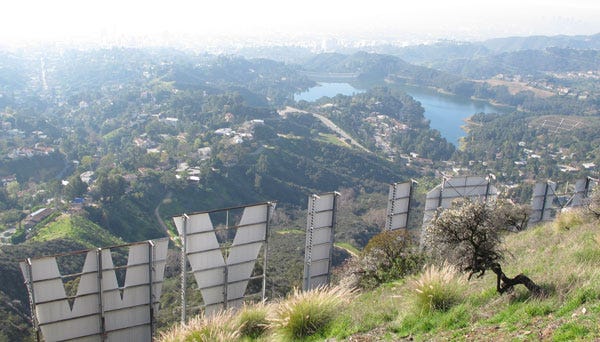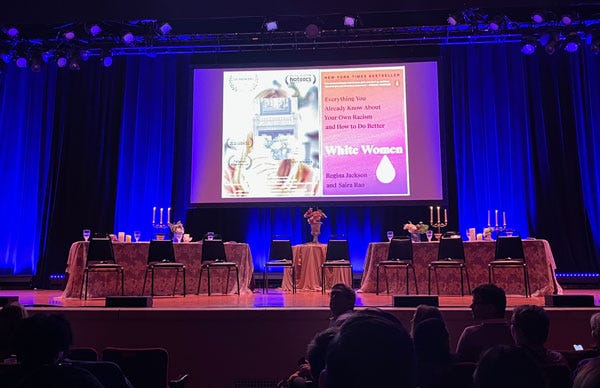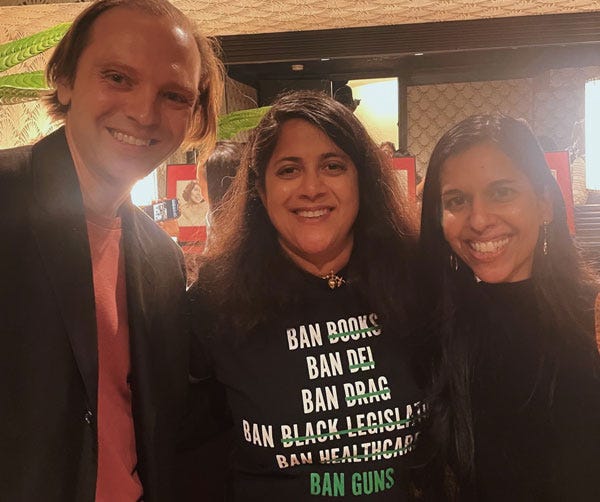Welcome to another edition of Willoughby Hills!
This newsletter explores topics like history, culture, work, urbanism, transportation, travel, agriculture, self-sufficiency, and more.
If you like what you’re reading, you can sign up for a free subscription to have this newsletter delivered to your inbox every Wednesday and Sunday and get my latest podcast episodes:
When I was a teenager, I wrote the word “Persistence” on a notecard in red marker and hung it above my bedroom door. It became a bit of a mantra for me, especially in my younger days.
Persistence has been a large part of what has driven my creativity over the last three and a half years since launching this newsletter and podcast. When I was unexpectedly laid off from my longtime job at This Old House in March, 2020, I not only found myself without a career, I was unmoored without an identity.
Out of that place of uncertainty, I launched my podcast in May, 2020. Scott Foley, who I knew from my time at This Old House, agreed to be my first guest and the show at the time was focused on how the entertainment and media industries were adapting to the pandemic.
At times it has felt like I am on a long road trip without a map or a compass. Every day, I continue down the road, but I’m really not sure what my ultimate destination will be or whether I’m making any progress towards my purpose. Still, I keep driving. Persistence.
Many years ago, I worked on a home renovation for This Old House in Los Angeles, commuting back and forth every few weeks from Boston. One time, we arrived in California after a heavy rain storm.
The rains had washed the smog out of the atmosphere temporarily and I suddenly had a view of the distant snow-capped mountains. They had been there the whole time, but I had no idea. Pollution in the atmosphere had obscured that view and I had no idea the beauty that was just beyond the horizon.
Strangely, this past week has felt like a bit of a culmination of all of my efforts over the last three years, a moment where some clarity seems to be coming through, like seeing those beautiful mountains after the smog cleared.
A few weeks ago, a longtime reader who also edits a digital publication saw a spark in a piece of my writing and commissioned an article for his audience. It’s the first time I might be paid for my writing (aside from subscribers to this newsletter), and I hope it gives me the opportunity to reach a different audience than I might otherwise.
The first draft of that new piece was due on Friday and I hope to share more details soon.
Friday also marked an important event in New York: a screening of the film Deconstructing Karen which was co-produced by Regina Jackson and Saira Rao.
Regina and Saira also co-wrote the book White Women: Everything You Already Know About Your Own Racism and How to Do Better, which I read and discussed as part of a book club at my children’s school.
After reading the book, I had reached out to Regina and Saira about being guests on my podcast. I was thrilled when Saira agreed to be interviewed in August.
What I didn’t anticipate was that after the interview, Saira and I began to discuss ways to collaborate. I hope to announce more soon, but I never could have expected when I first received an email from my kids’ school inviting me to join a book club that it could lead to an entirely new world for me to learn about and explore.
The screening of Deconstructing Karen was at the historic venue The Town Hall, a 1,500 seat theater that has a more than 100 year history of hosting events about social justice.
The first thing that I noticed at the event was that the audience felt like a true mix of New Yorkers from all walks of life: there were Black, brown, and white women and men of all ages. It was nice to feel the inclusion of the space and the event.
I was very aware of a conversation I had on the podcast with Larissa FastHorse just last week where she described how the very structure of theater can be racist:
“Our Western theaters are created based on a white supremacy culture model… You have all these resources to show up on time and be silent and turn off your phones because you don't have to deal with auntie taking care of the kids back home you know what I mean?… You should be able to check your text because grandma's having an emergency and answer it quickly and quietly and put it away.”
There was serendipity in the air, sitting in a theater in Midtown, watching Regina and Saira’s film on screen, with the words of Larissa FastHorse on my mind.
The last time I was in New York prior to this weekend was in May to see Scott Foley act in the Broadway debut of Larissa FastHorse’s The Thanksgiving Play in a venue a five minute walk from The Town Hall.
I loved Scott’s acting and the work of his three co-stars D’Arcy Carden, Chris Sullivan, and Katie Finneran. I was also drawn to the writing and knew I wanted to interview FastHorse, the playwright behind the show who is also believed to be the first Native American female writer to have a show on Broadway.
Ironically, I don’t know that I would have understood or received The Thanksgiving Play in the same way were it not for the work of Regina and Saira. Their book and the ensuing discussion with other parents at our school caused me to see the world differently and be open to the lessons in the play.
Seeing Deconstructing Karen on a big screen with a full house of more than 1,000 people was quite the experience. Equally moving was the panel discussion on stage after the film which included Regina, Saira, the film’s director and executive producer Patty Ivins, Grammy-winning singer-songwriter Angela Hunte, communications professional
, Broadway professional Camille Lynn Wright, musician and Broadway performer Morgan James, and author .Believe it or not, I hadn’t heard of Frederick Joseph until a few weeks earlier, but his work has already changed my life. For some reason, the Instagram algorithm decided to show me a post about Frederick’s event at Uncle Bobbie’s Coffee & Books in Philadelphia. I was immediately drawn in by the title of his book Patriarchy Blues and the caption on the post, which said in part:
“His book #patriarchyblues has been banned by institutions across the nation, so you KNOW it’s powerful”
I began following Frederick’s Substack (and you should too) and read his first book The Black Friend: On Being a Better White Person, which includes an interview with Saira. I also just started Patriarchy Blues and am already really moved by it.
At the time, I was drawn to Frederick because of his work, only later learning that he was friends with Saira and was a panelist at Friday night’s screening. I especially appreciated his insights how antiracism work is never ending and that we need to be constantly evaluating our role in racism and the patriarchy and striving to do better. There is no finish line, there is no end.
It was also amazing hearing very personal stories on the stage from Angela Hunte and Camille Lynn Wright about the struggles on being Black in any industry and the amount of external trauma that can often be internalized as a part of that.
After the show, Saira invited us to a reception where we were able to meet many other like-minded people. I felt like everybody in attendance was eager to learn, eager to share, and eager to listen. I felt a sense of community and shared values that was invigorating and sustaining.
As the screening was starting, just a few blocks away, protestors led by the group Jewish Voice for Peace were staging a massive protest at Grand Central Terminal, calling for a ceasefire in Gaza. It was a very real and physical manifestation of what was being discussed on stage at The Town Hall.
As we were driving home, we played the Hamilton soundtrack in the car and the lyrics to “The Schuyler Sisters” seemed to take on new meaning:
“Look around, look around
At how lucky we are to be alive right nowHistory is happening in Manhattan
And we just happen to be in the greatest city in the world”
Three and a half years ago, I started a project, not realizing I was blinded by fog all around me. I still have a long ways to go and am not entirely sure the direction that I’m heading, but this past week was a much appreciated and valued stop along the path.
I have grown so much over the last three years and have found myself in a place where all the seemingly random bits that I have taken from over 100 conversations on the podcast and something like 200 essays on this newsletter are starting to connect and collide in unexpected and beautiful ways.
Perhaps reading “Persistence” on a notecard everyday for several years caused that theme to become internalized within me. I have to believe there’s a beautiful mountain looming over me somewhere in the distance. It’s been there the whole time, I’ve just needed the conditions to be right for me to see it.
Thanks for reading Willoughby Hills! Subscribe for free to receive new posts and support my work.
Related Reading
The Thanksgiving Play and Memorial Day
If you’ve missed past issues of this newsletter, they are available to read here.









